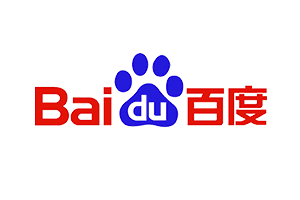Baidu introduces multi-modal autonomous driving MaaS platform in guangzhou

Baidu, Inc. deployed a multi-modal autonomous driving MaaS (mobility as a service) platform that will provide AI-driven city transportation services in Guangzhou.
Utilising a fleet of Apollo Robotaxis and Robobuses along with three other model types of autonomous vehicles, this initiative will allow local users to order smart transport services on demand, starting in the Chinese New Year holiday period. The implementation of both Baidu Apollo and the ACE Transportation Engine is a testament to the promising commercialisation prospects of smart transportation in the intelligent era.
Baidu has partnered with the Guangzhou Huangpu District government to roll out the multi-modal autonomous driving MaaS platform. By integrating an assortment of autonomous driving services to provide travel recommendations, this diverse platform can holistically optimise the travelling experience of users in line with combined platform strategies.
Comprising of over 40 autonomous vehicles, the collective fleet has deployed five different model types Robotaxi, Robobus, Apolong, Apollocop and New Species Vehicle to begin comprehensively serving the city during the bustling holiday period. Citizens are able to make reservations on the Baidu Maps and Apollo Go mobile applications to witness these new exciting autonomous driving initiatives and experience the convenience brought on by intelligent transportation technology. With the ability to cover a variety of usage scenarios, the MaaS platform ecosystem can meet the diverse needs of many citizens during their holiday sightseeing, shopping and celebratory outings.
To facilitate this, Baidu Apollo has established over 50 Robotaxi pickup stations in the district, providing users with easy access to Chinese New Year festival sites using autonomous vehicles. Simultaneously, a batch of New Species Vehicles are cruising around the city, tasked with unmanned retail, as well as routine cleaning and disinfection.
Apolong minibuses will shuttle eager sightseers to the flower blossoms around scenic parks and lakes. Meanwhile, Apollocop patrols the main roads near key areas and the Baidu Robobus will ferry passengers along fixed routes, facilitating community travels towards festive destinations.
Baidu’s prowess in intelligent transportation is not solely limited to autonomous vehicles; it is complemented by a reliable intelligent network consisting of AI roadside infrastructure and a dynamic digital-twin cloud platform, fostering better mobility and travel prospects for the local community. Real-time signal light information such as stoplight countdowns, traffic event alerts and intersection queue length are broadcasted on both the interactive monitors embedded in Robobus or Robotaxi cabins as well as the exterior screens fixed on the rear of Robobuses.
Additionally, users can utilise the Baidu Maps app or DuerOS-powered smart rearview mirrors to receive voice alerts of electronic fence monitoring, access signal light reminders, live traffic event venue broadcasting and other connected online services.
The ACE Transportation Engine a full-stack solution that stands for “Autonomous Driving, Connected Road, Efficient Mobility” has been introduced to improve the traffic flow around the district, reflecting Guangzhou’s status as a centre of smart transportation.
A large ACE smart traffic electronic display has been set up on a prominent skyscraper to visually display the AI solutions at work; from the coordination of smart transportation for local commuters by the transportation bureau, to the intricate traffic management maintained by law enforcement, the technology is being brought to life and exhibited to the inhabitants of Guangzhou.
The MaaS platform for multi-modal autonomous driving vehicles and ACE Transportation Engine demonstrated by this Chinese New Year launch has accelerated the arrival of the intelligent era of smart transportation. Guangzhou’s open and inclusive policy environment fosters and encourages the development of the autonomous driving industry.
Going forward, Baidu will continue conducting regular trial operations by additionally deploying over 100 Robotaxis and establishing almost 1,000 pickup stations in Guangzhou Huangpu District; this will allow local citizens to continue utilising autonomous driving services in their daily lives, in lieu of similar Robotaxi programs implemented in Beijing, Changsha, Cangzhou and other areas of China.
In the face of immense opportunities in terms of increasing digitalisation, high-speed networking and automation of transportation in the future, this strategic partnership with Baidu has enabled the Guangzhou Huangpu District to become a benchmark city for new smart transportation infrastructure.
Comment on this article below or via Twitter @IoTGN
